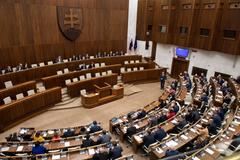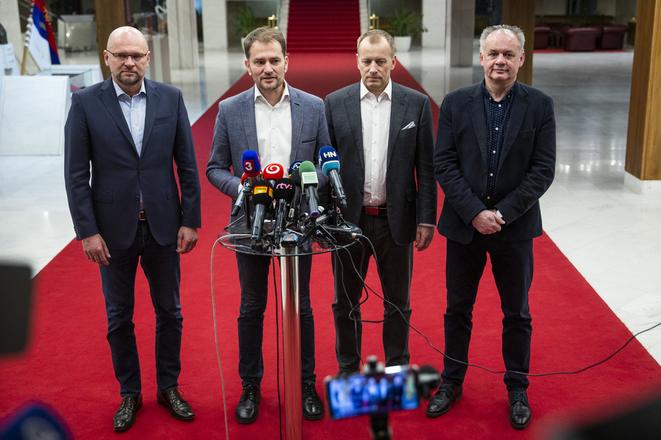Read in this story:
-What challenges the new government faces
-How the COVID-19 virus outbreak could affect Slovakia’s fiscal position
-What economic experts think about the Sme Rodina party’s ‘creative accounting’
-Who is in the running for top ministerial posts
As strict measures are implemented to stop the spread of the COVID-19 virus in Slovakia, the incoming government is facing a significant challenge from the virus, economic experts have said.
Prime Minister-elect and leader of the Ordinary People and Independent Personalities (OĽaNO) movement, Igor Matovič, continued talks with his three potential government coalition partners – Sloboda a Solidarita (SaS), Sme Rodina and Za Ľudí - this week on forming a government.
The parties have also discussed economic plans and investments.
But, say economists, while the country’s fiscal position was less than ideal before the elections at the end of last month, the COVID-19 virus is posing another serious threat to state finances.

“Winning these general elections is turning into more and more of a Pyrrhic victory [for the incoming government],” said Vladimír Vaňo, chief economist at the Slovak arm of the global accounting and advisory firm Mazars. “This is especially true with regards to manoeuvring space in fiscal policy and the inevitability that firefighting measures [need to be adopted] due to measures passed ahead of elections, as well as the rapid escalation of the COVID-19 virus outbreak just after the elections.”
Just one week before the election, parliament passed legislation introducing a 13th annual pension payment. It is estimated that this will create an additional annual burden on already stretched public finances of about €420 million annually.
Meanwhile, the COVID-19 virus outbreak will see Slovakia take a financial hit from the implementation of emergency measures and as the country’s economy slows.
For all the news about the coronavirus in Slovakia click here.
Old and new challenges
In the run-up to the election it appeared that the major economic challenge for the new government was likely to be a budgetary overshoot combined with the risk of a further economic slowdown.

While the 2020 budget had been approved with a planned deficit of -0.49 percent of GDP, last month the Council for Budget Responsibility (RRZ), an independent body for monitoring and evaluating Slovakia’s fiscal performance, warned that the full-year result could come in at -2.4 percent of GDP.
Vaňo pointed out that “… both the German and eurozone economies might face a more significant economic slowdown this year, which will directly affect Slovakia”.
On top of this, since the election the country has seen the first recorded cases of the COVID-19.
The spread of the disease, experts say, could hurt Slovakia’s export-driven industry, and deliver a sudden and significant negative hit to the service sector, including restaurants, hotels, tourism, transport and entertainment as measures to contain its spread are brought in.



 Richard Sulík (SaS), Igor Matovič (OĽaNO), Boris Kollár (Sme Rodina) and Andrej Kiska (Za Ľudí), from left. (source: TASR)
Richard Sulík (SaS), Igor Matovič (OĽaNO), Boris Kollár (Sme Rodina) and Andrej Kiska (Za Ľudí), from left. (source: TASR)